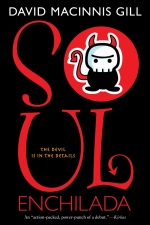In 1910 in rural Irwin County, Georgia, an abusive farmer had a fight with his wife, and he held them at gunpoint when she tried to leave their threadbare clapboard house with the children. One of the children escaped and was able to get help from neighbors. The sheriff was called, but by the time he arrived, the farmer—later termed a desperado by the local newspaper—had barricaded himself inside the house. When the sheriff demanded the man come out, he shot and killed the sheriff. A posse was called, and my great grandfather was part of the group. At some point, he was wounded and a month later, died of pneumonia due to complications from the wound. The stand off ended when the state militia was brought in and shot the house—and the desperado—to pieces. A collection was taken to rebuild the house for the widow.
I grew up with stories of how my great-grandfather was a hero for his role in this tragedy, told to us kids as if he had faced down the desperado in a gun battle, but years later, when curiosity led me to investigate the primary sources, I learned that the hero in this story was not the sheriff, or the state militia, or my great-grandfather. It was my great-grandmother. She was thirty years old when her husband was killed, and she was left with five children to raise on her own, with no income and no means of support. Women then had no right to own property, no right to an education, and no ability to earn a living wage without remarrying. Unlike the family of the desperado, no one rebuilt the home that her husband’s death had cost her. And yet, with all that stacked against her, she raised all of her children on her own for three years, until she remarried a second time, and the marriage stuck. By all accounts, including my father’s (a man who never used hyperbole in his life) Grandma S was a force to be reckoned with, even into her eighties, when she passed away, having seen two world wars, the deaths of two husbands, and very little progress in the plight of women like her, who had entered this world with next to nothing and left it the same way. Sure, she was a recipient of social security when she retired, but it did little at that point to help her situation. How different her life would’ve been if this intelligent, resourceful woman had been given access to even basic schooling, the ability to make a living, and the support she needed when she was widowed. What did her children lose? What did the community lose when this mind was wasted on poverty and misogyny?
I wonder the same thing when I think of my grandmother, who was the daughter-in-law of Grandma S. My grandmother was also born into poverty, under-educated, and denied access to services we take for granted. She lost her husband, too, but to abandonment, when he left her with six children to raise on her own. She, too, was a farmer’s wife, but she took a job as a cook in the local bus station, and she eventually moved with her youngest children into public housing, and she remained in assisted housing for the rest of her life. She, too, was as tough as nails. She raised her children the best she could, working well past retirement age. Well into her nineties, she walked miles to the grocery and back, carrying her her own groceries as she carried her own burden through life. She had very little, and what she had, she shared with her children and grandchildren, never forgetting a birthday and giving gifts that proportionate to her income, were worth thousands. Yet I have the same questions: Where would she and her children have been without public housing when they needed it? How different would her life had been if she had not been systematically denied the same opportunities her father, husband, and male children had?
I wonder the same about my own mother, who was raised in the 50’s in the mountains of Tennessee with no electricity and no plumbing. She dropped out high school to work to help support her family. She married my father—also a high school dropout–when she was still a teenager, and by the time she was 24, she had four small children with no family or community support. To make a bad situation tragic, the last of her children, my younger sister, was born with birth defects caused by a case of German measles. Rubella is a mild disease for the mother, but for the child, it can be lethal. My sister was never expected to live for more than a couple of months, but she survived nine years, thanks for the love and constant care she received from my mother, and then us as children. Her birth defects were catastrophic: she never developed mentally or physically beyond the age of a six-month old—she never walked, never spoke, and was an infant all her life. This was in the days before PL 94-142, which required states to provide services for the handicapped and their families. No agency, no charity, and no church would help my family. They had no idea of how to deal with a six-year-old infant. So in order to take care of my sister, my mother worked third shift in a yarn mill. She would come home as we left for school, and she had would sleep whenever my sister would. I still remember her pulling strands of yarn out of her eyes at the end of each shift, like colored cotton cobwebs. Because she had little education, my mother never accepted that the birth defects could be caused by rubella, such a mild disease. Instead, she believed that there was something she had done, some sin she had committed, that caused the birth defects. This belief filled the rest of her life with guilt and grief, and I believe, shortened it. So I ask the same questions again: How could her life been better if she had access to the help that we have now? If poverty hadn’t robbed her of an education, of health care for her children, of counseling for the grief and guilt that crippled her? What if someone had been able to speak for her? What if someone had listened?
I think of these heroic woman, and I think of all the dishonorable names women like them have been called lately. I think of the access education, housing, nutrition, clothing, and health care—basic needs that no American in our grotesquely wealthy country should ever want for—that my heroes were denied. I will think of the worlds they were born into and wonder how better life could have been. I will consider the chant to make America great again, and I will wonder how anyone could think that the America they lived in was anything close to great. I will think of the voices they were never allowed to raise, either by law or by custom, and how they were silenced—and how women could be silenced again. That’s why when I go to the polls in November, I will think of these women again, and I’ll remember their silenced voices, and when I vote, it will not be for a candidate, but for them.






